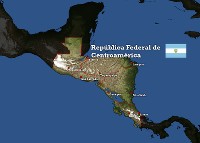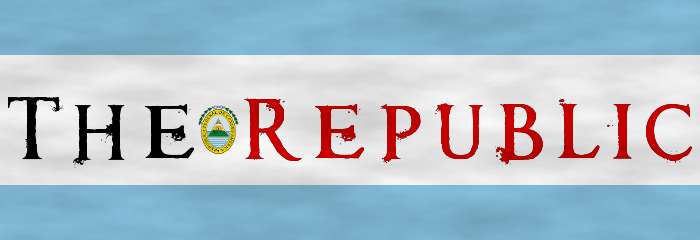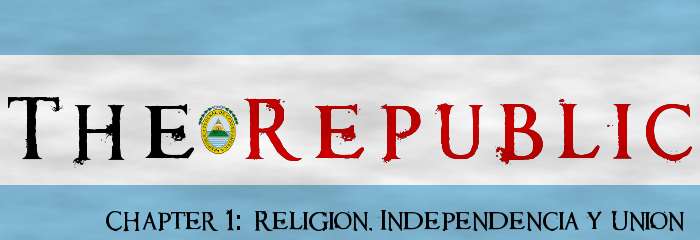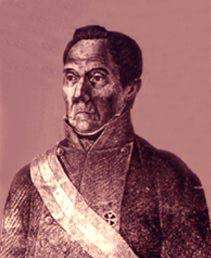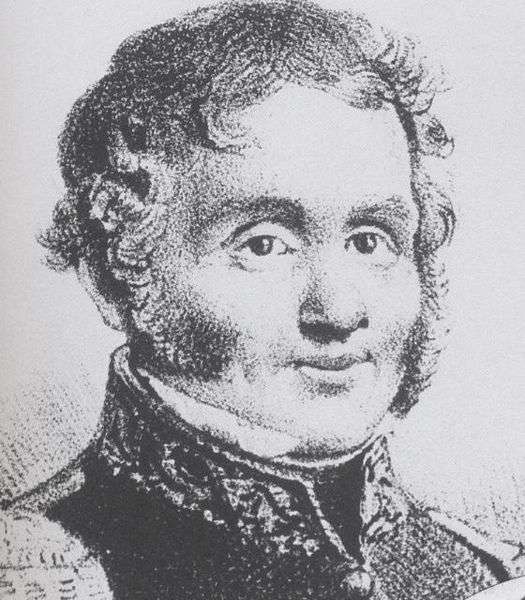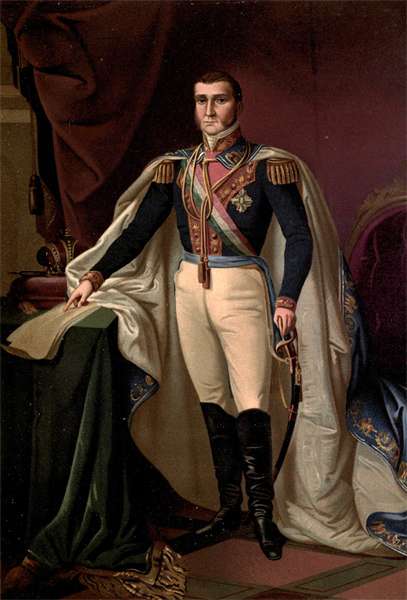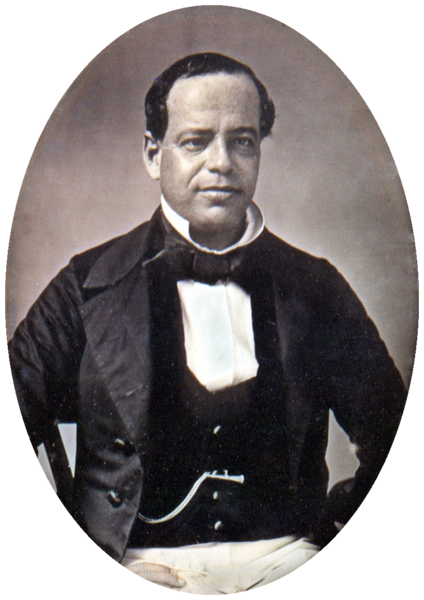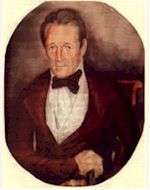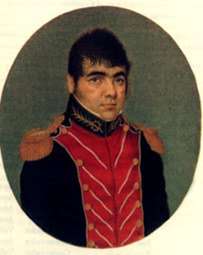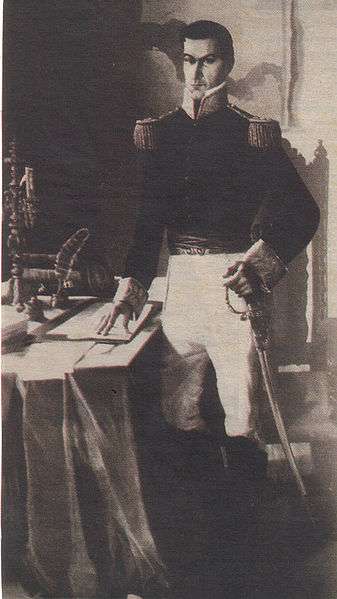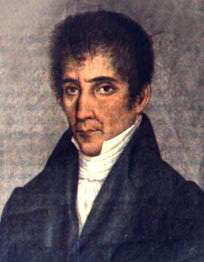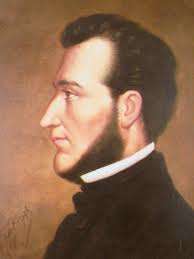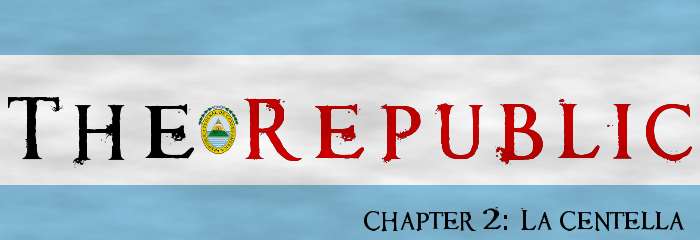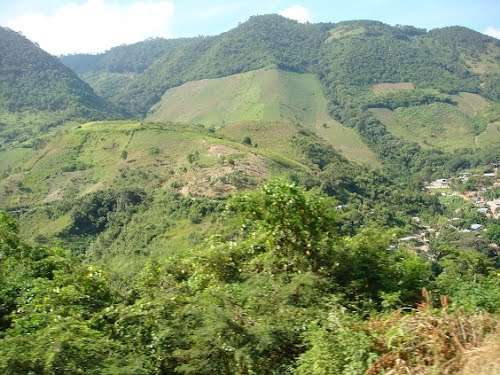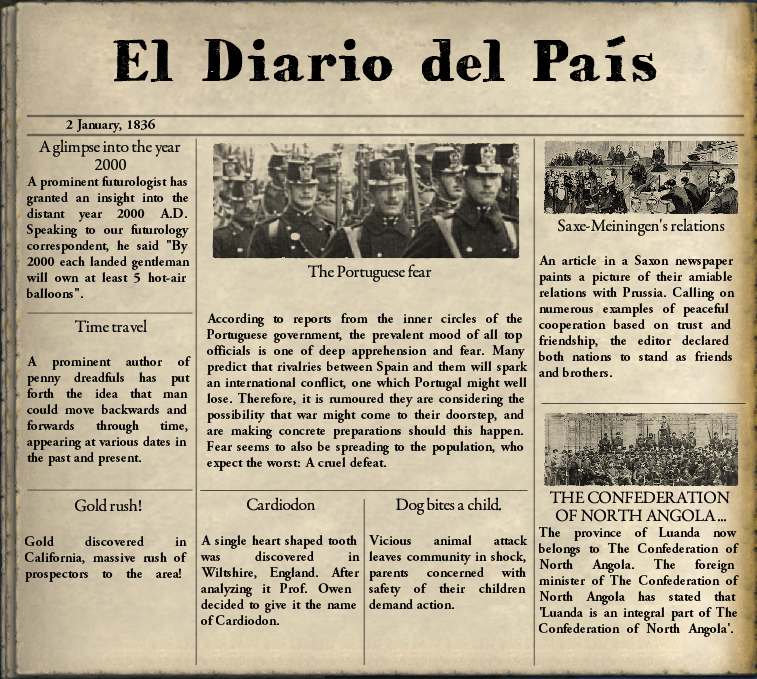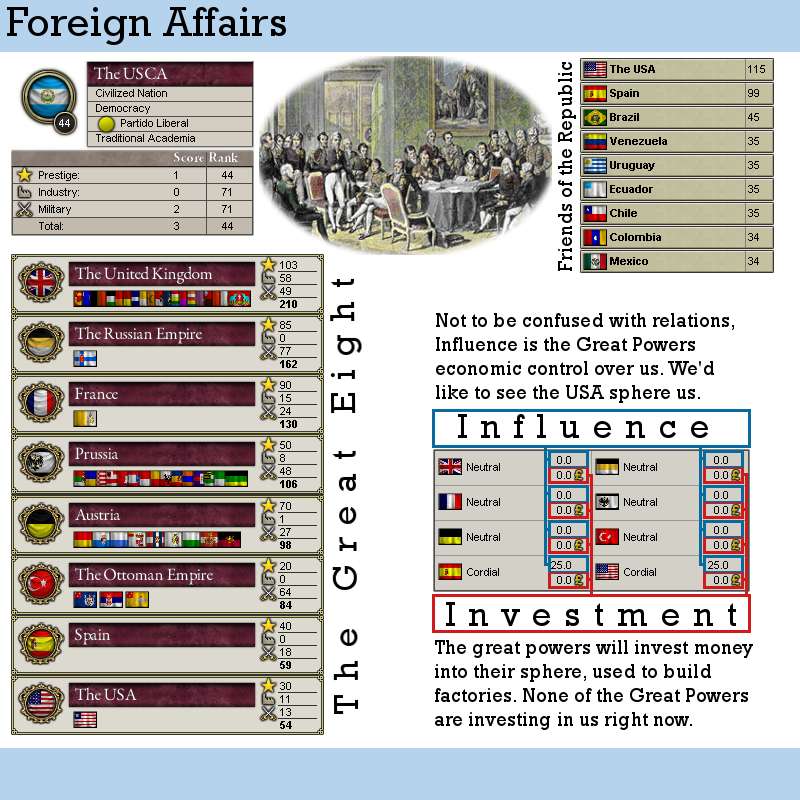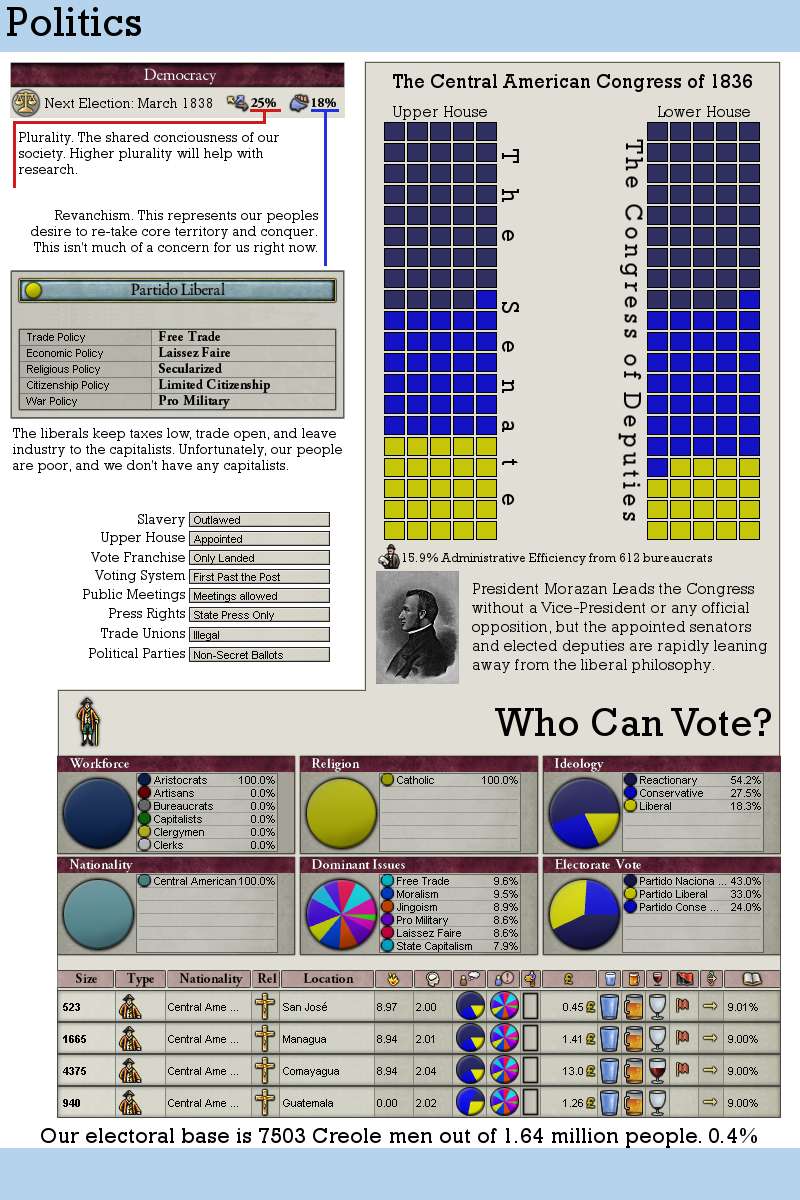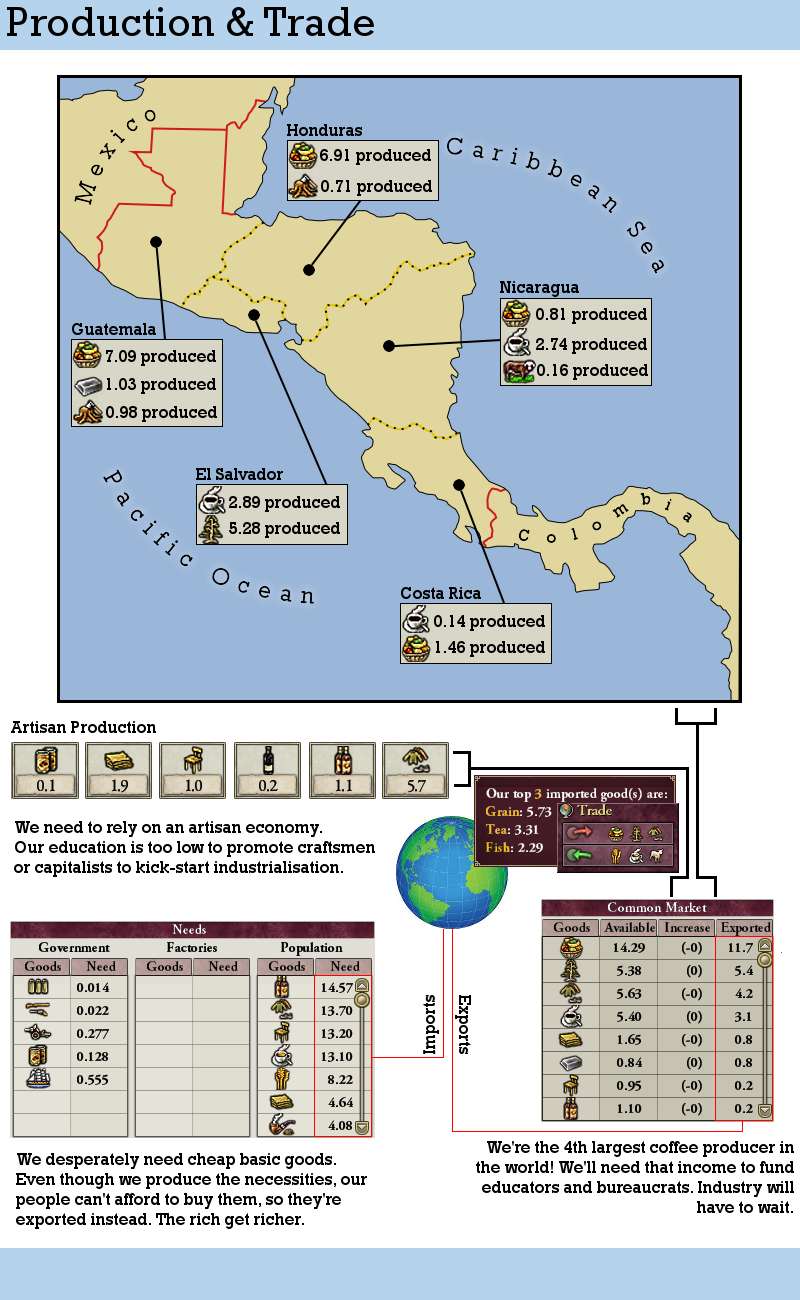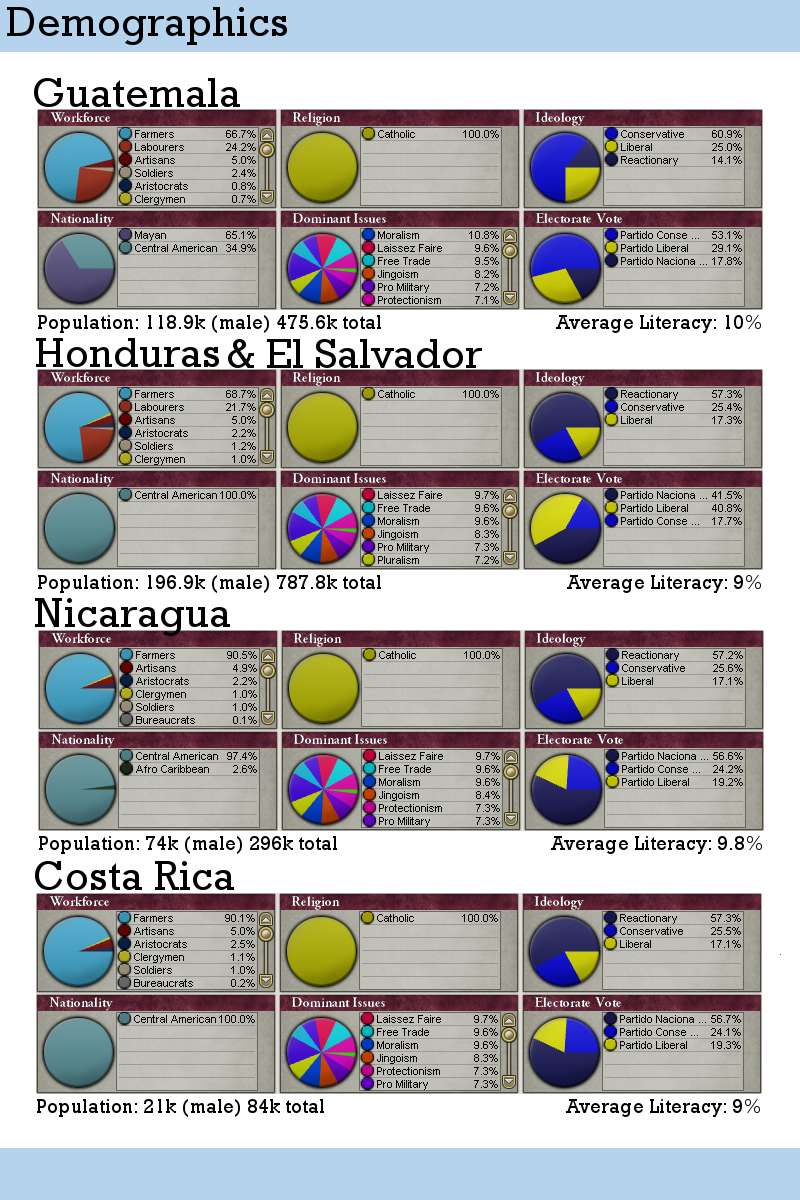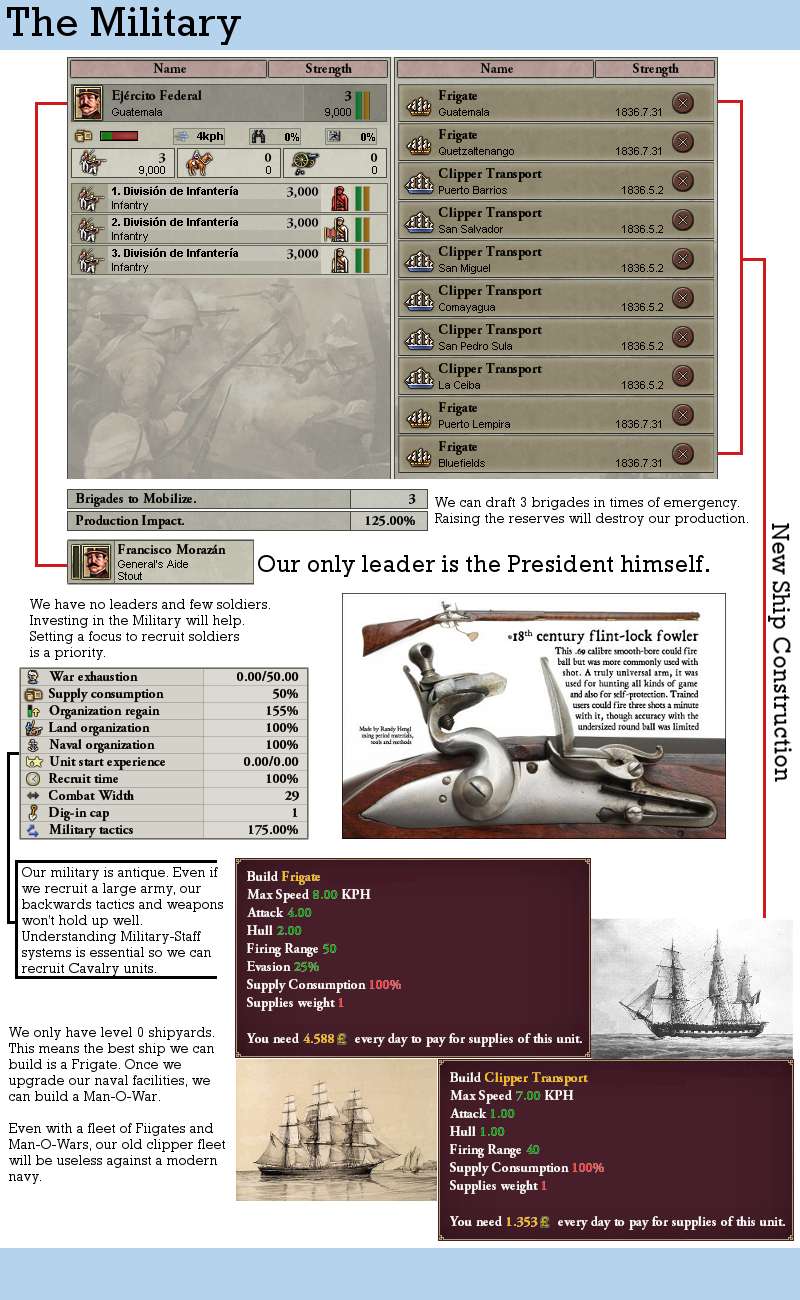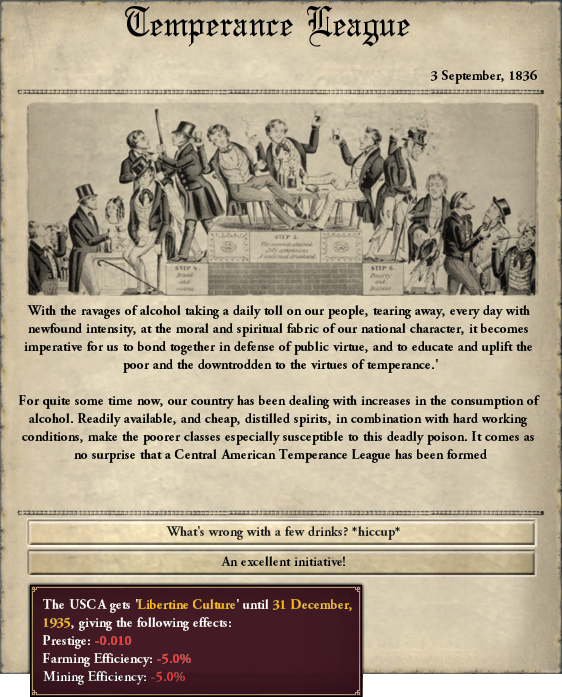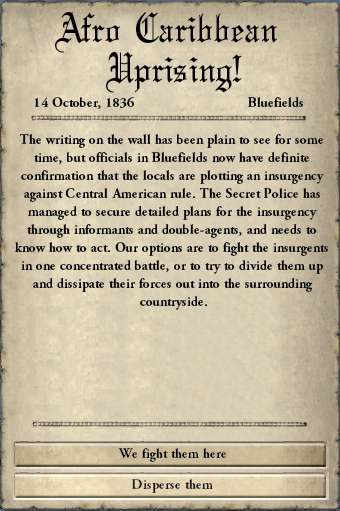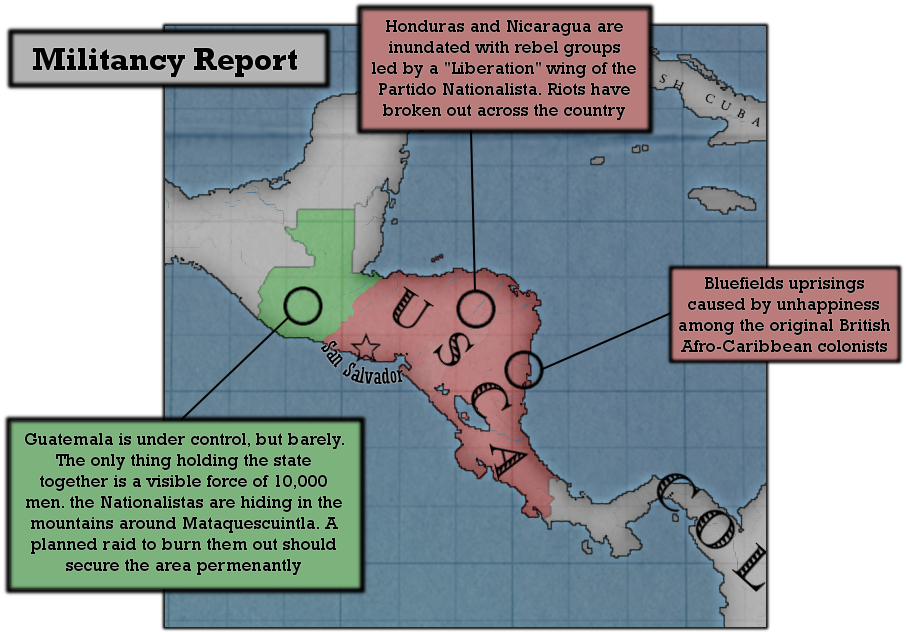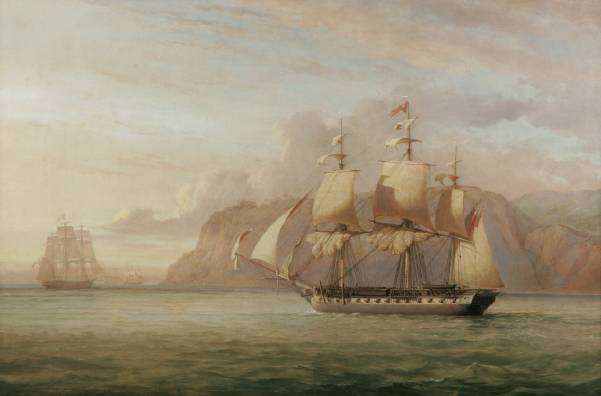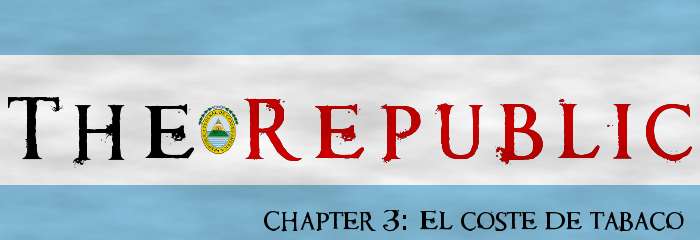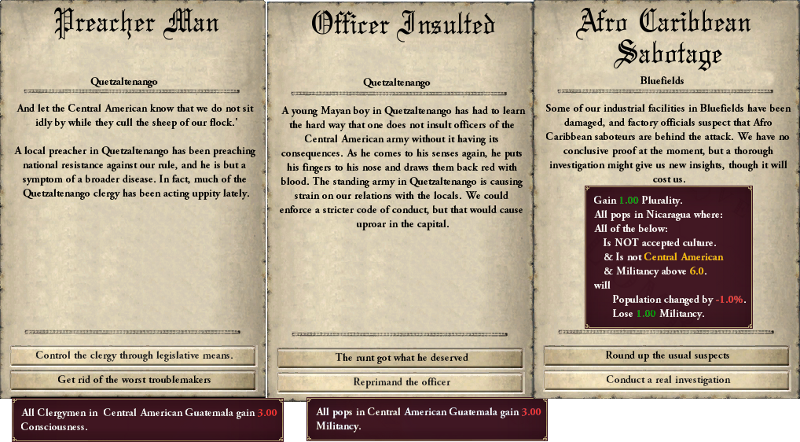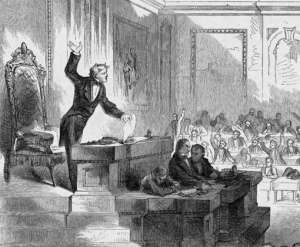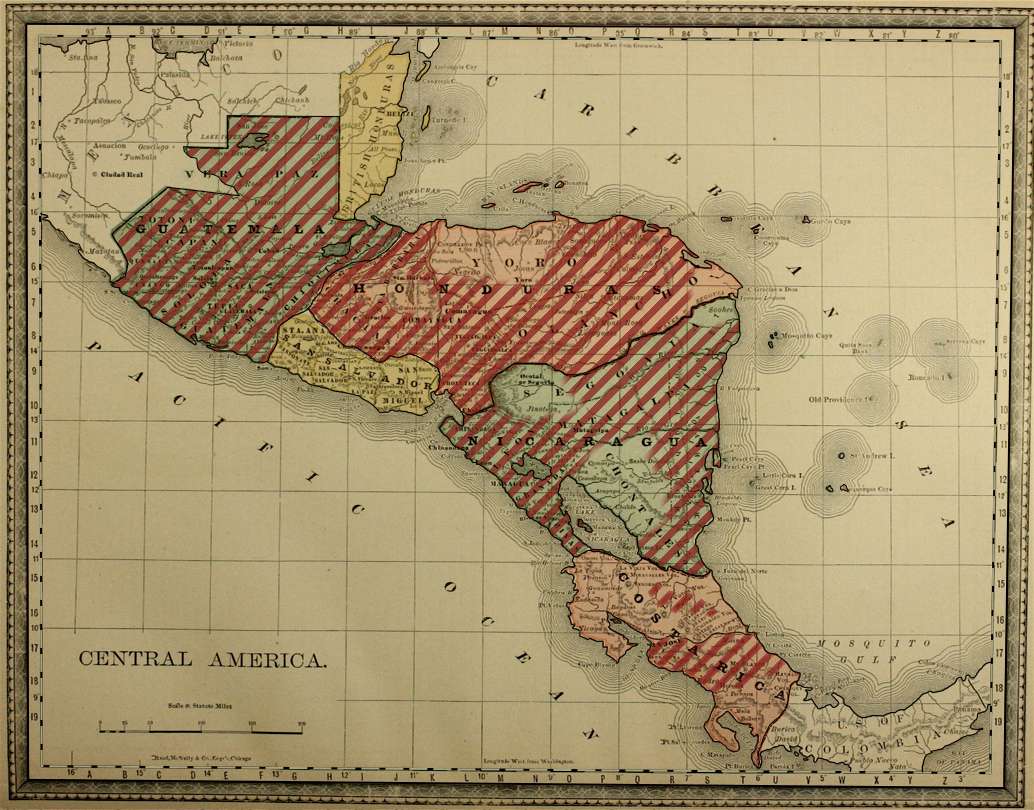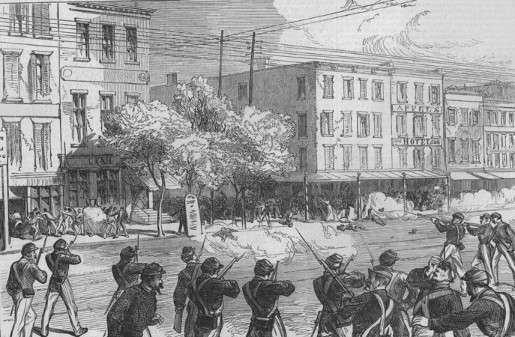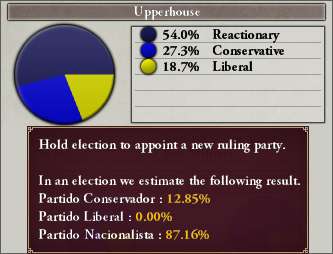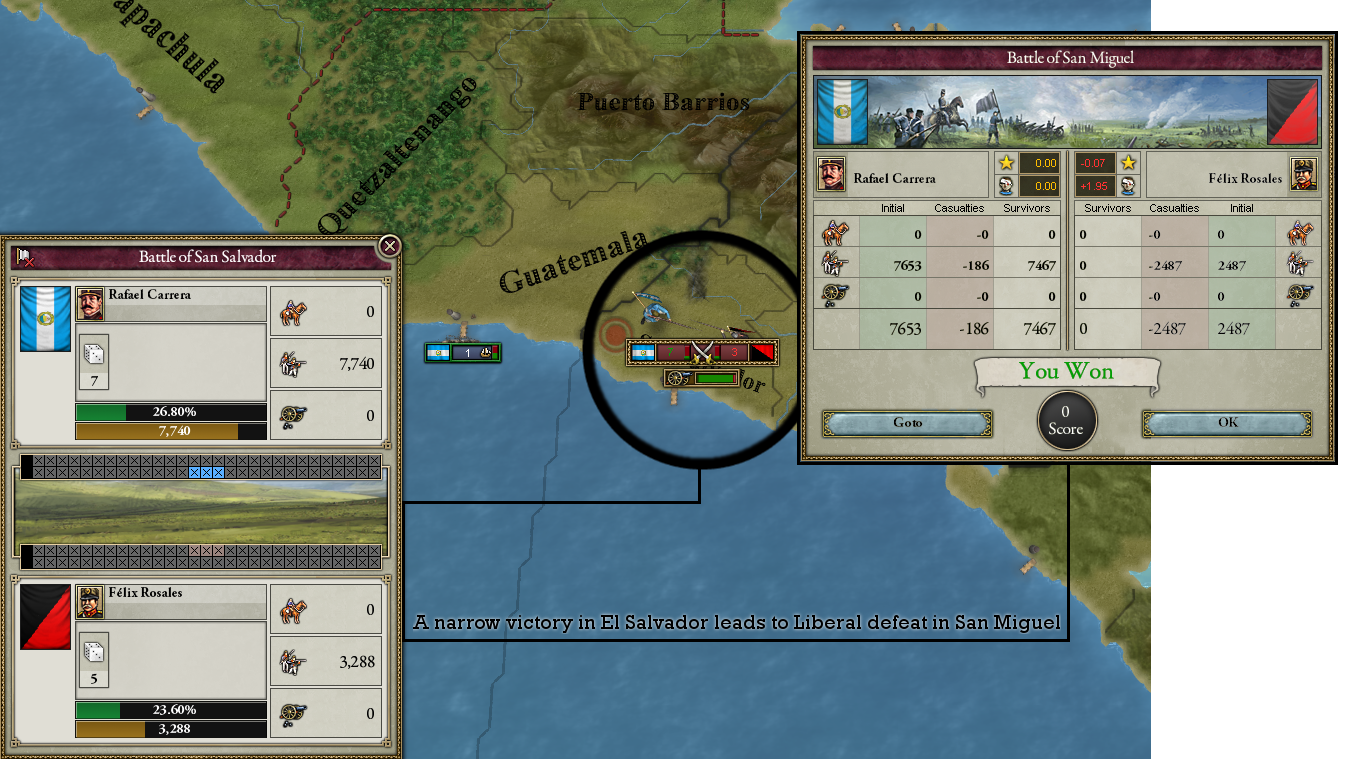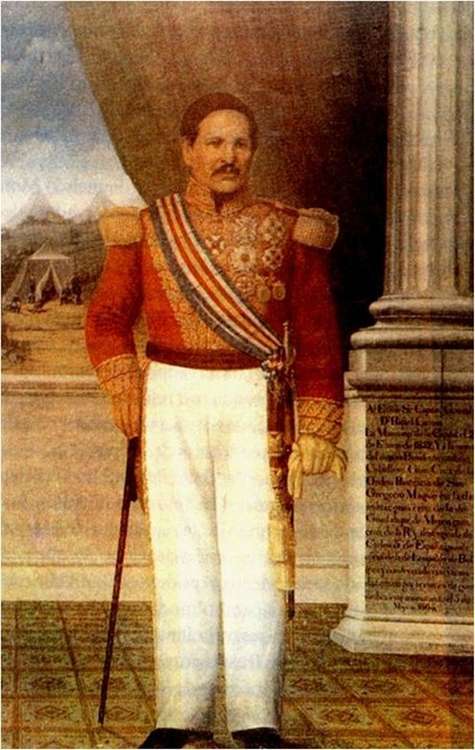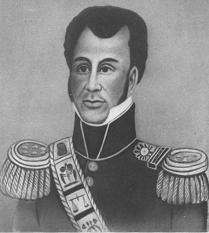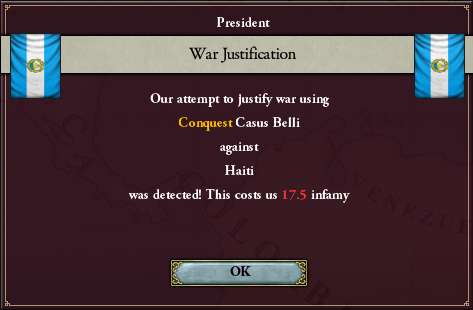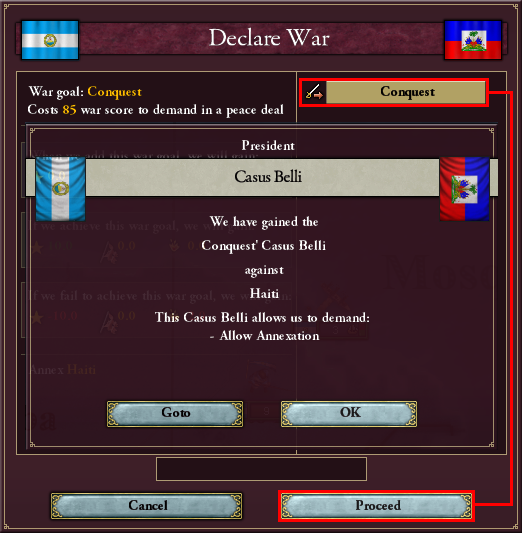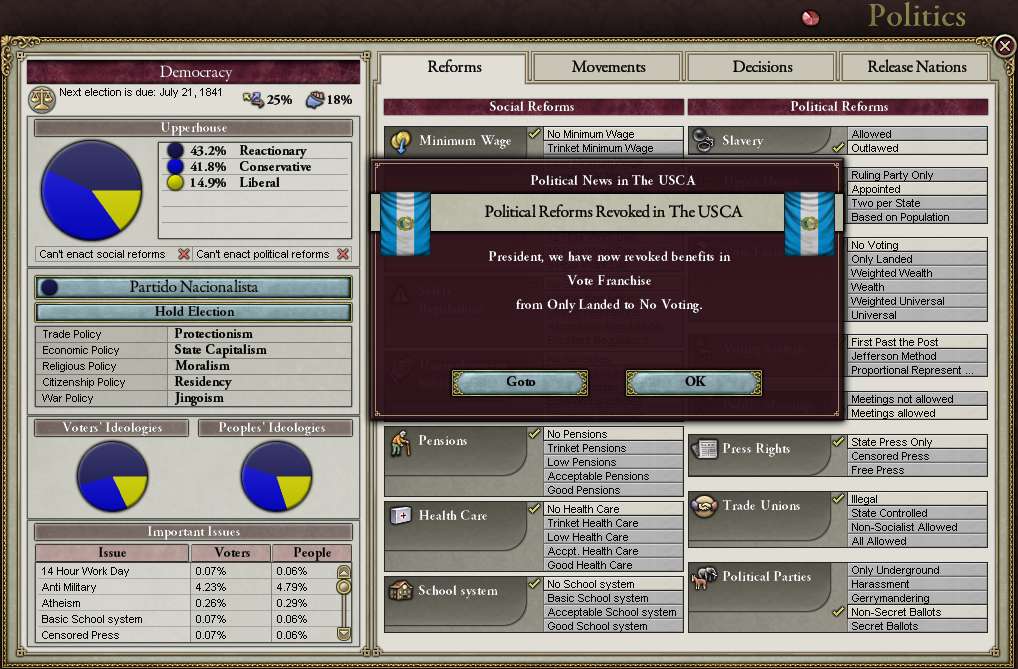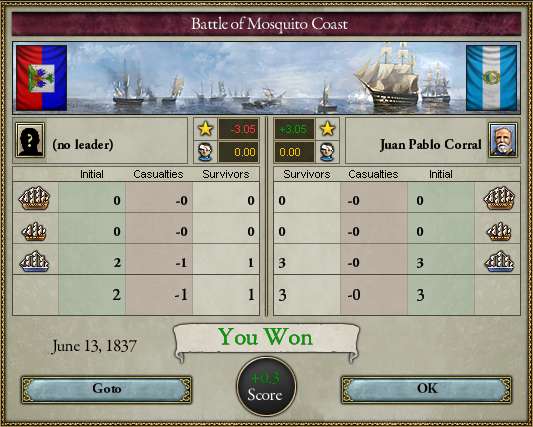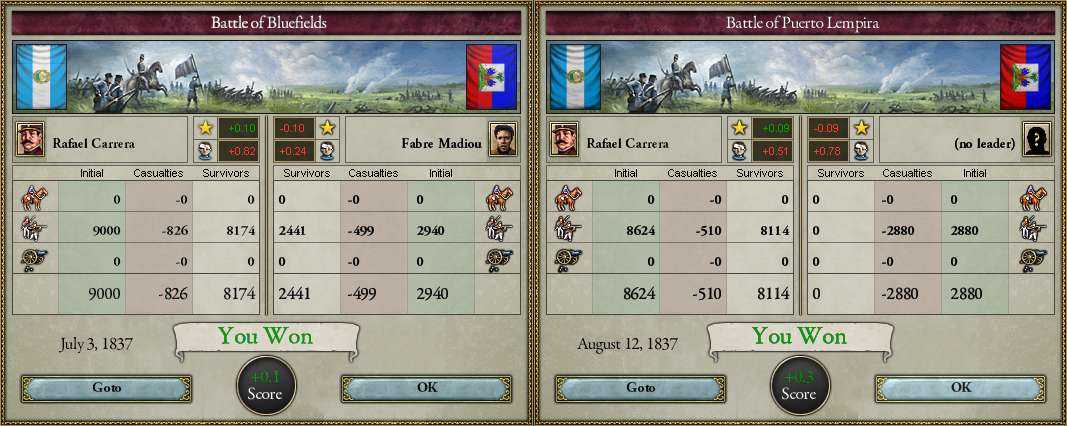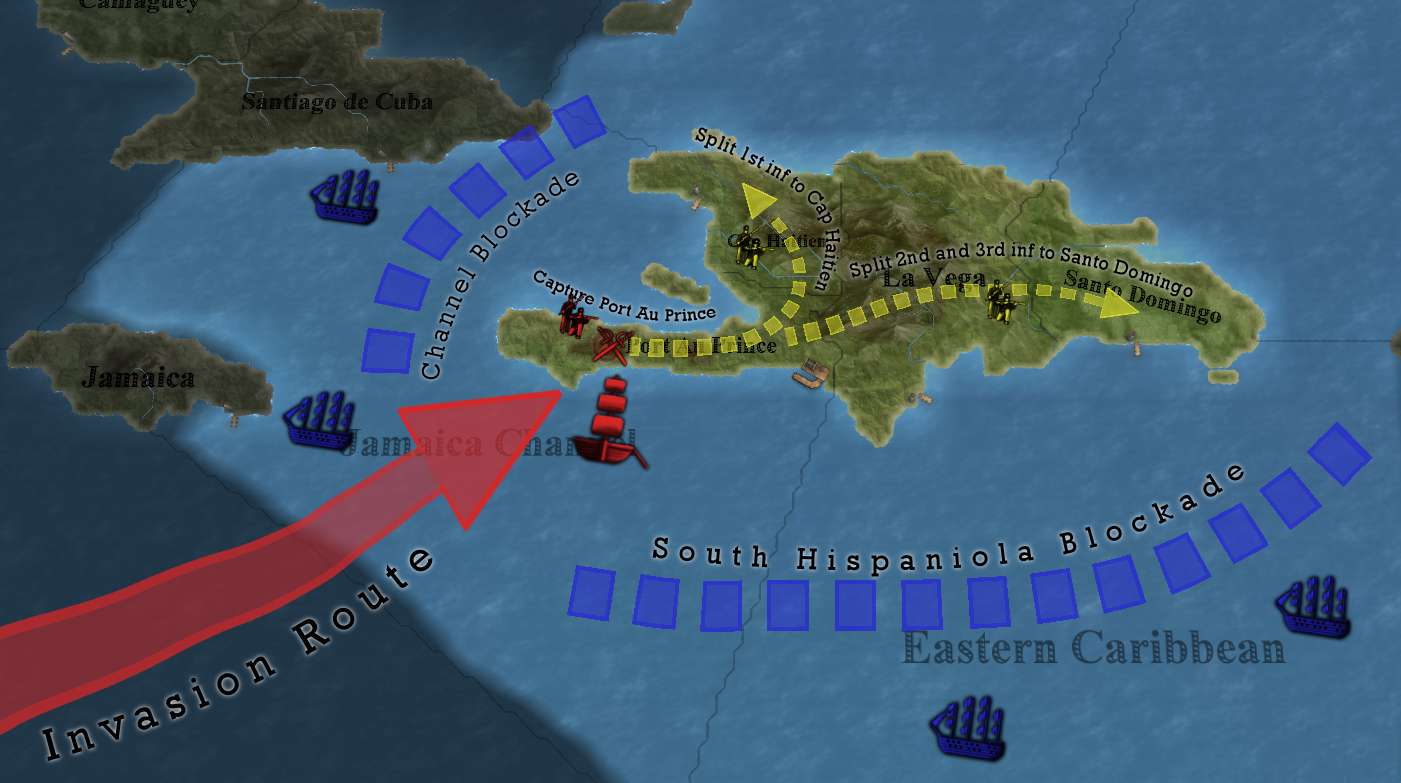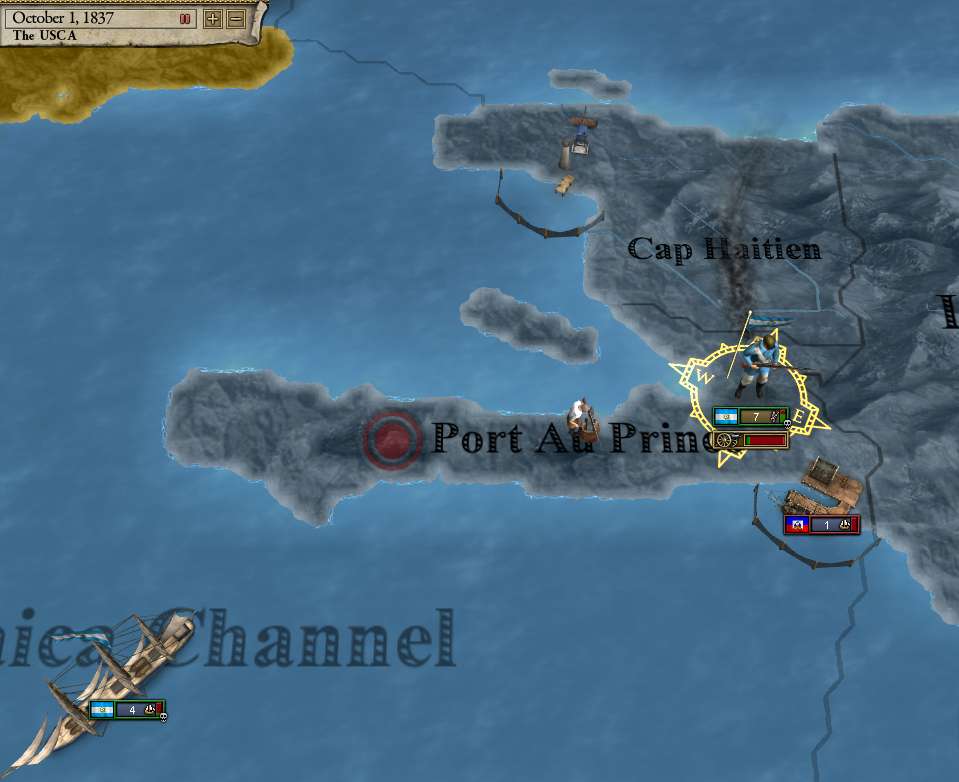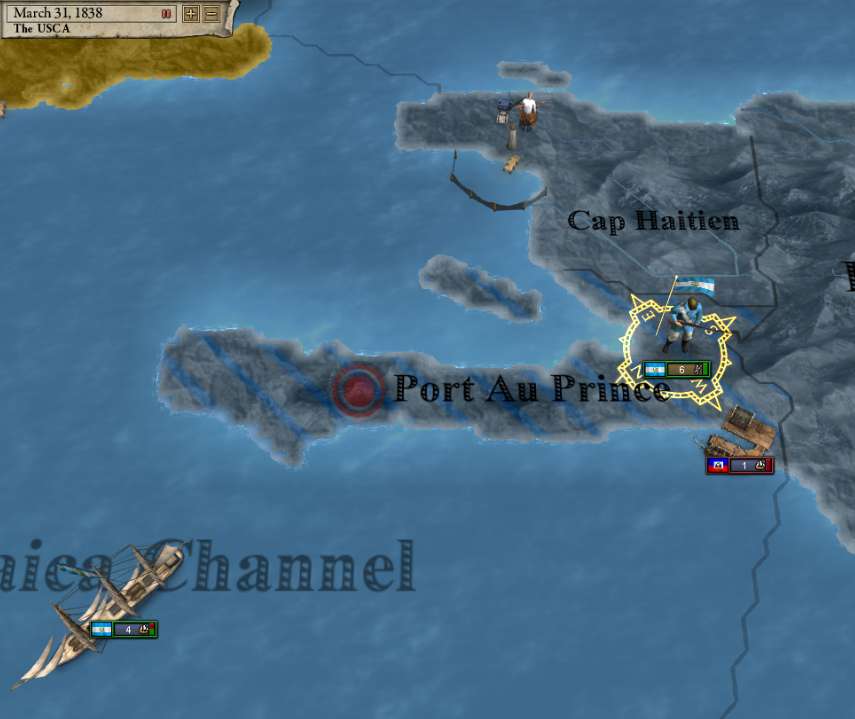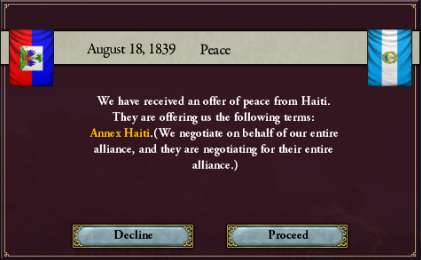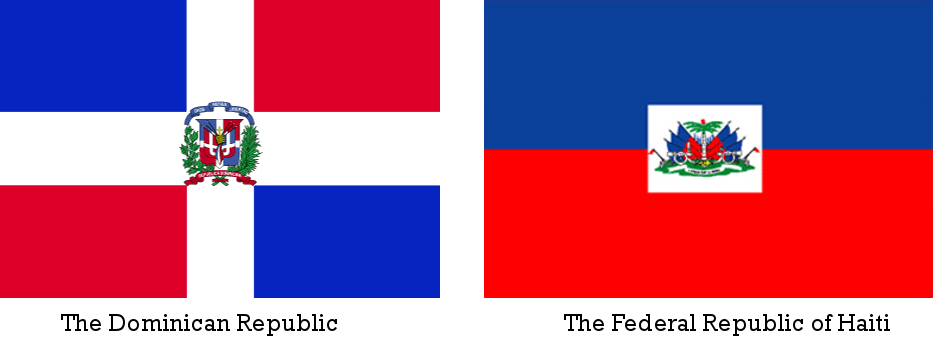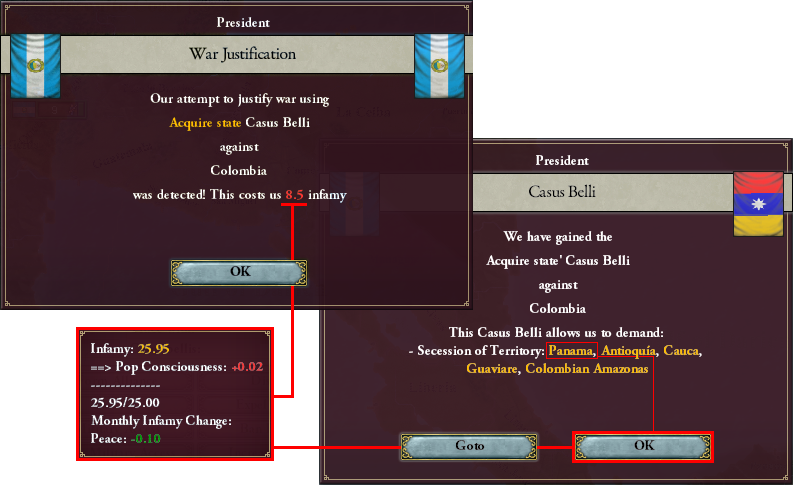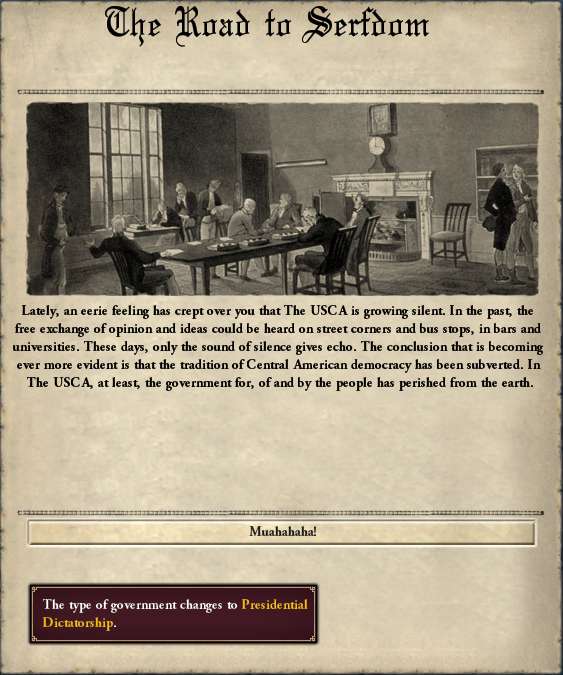The air was thick and wet. It seemed to cling to the outstretched arms of the jungle, its leafy fingers pulling the watery clouds out of the sky and emptying them in buckets over Mataquescuintla. It was the middle of invierno; the rainy season. A young man kicked the mud from off of his boots before leaning his walking stick against the railing of a wooden patio. The patio was placed roughshod in front of a small weather beaten house, that looked as tangled as the jungles that blanketed the rolling hills. He struggled to light a half-smoked cigar, and when the flame finally stayed put, he too leaned heavily into the cracked and peeling railing.
The man, barely twenty, looked much older. Dirt stained his hands moreso than his tattered clothes, and the smoke from the cigar struggled to escape the thick moustache that grew wildly under his nose. He surveyed his farm, watching his pigs play gleefully in the mud.
The rough-cut farms along the hills of Mataquescuintla, Guatemala.
The sloppy schlocking sound of hooves in mud distracted the young man from inhaling the last of his cigar. At the end of the muddy path that led to the road, a group of ten men on horseback sat, nervously gazing into the trees. Three of them carefully guided their horses down the pathway toward his house. One of the men, a familiar face, wore a sharp blue coat studded with gold buttons, a broad red sash was strapped around him. The other two wore simple grey coats with distinctive, twinkling silver buttons.
"Señor Carerra" the man with the red sash spoke bluntly.
"Si" the young man responded, with equal bluntness. "It's good to see you Diego, or I suppose that should be Captain Diego now." the young man smiled coldly and stood straight, picking up his walking stick and eyeing the two grey men at Captain Diego's side.
The Captain smiled broadly. "You would have made general by now, had you not left the army, Rafael. You were a hell of a soldier."
Rafael Carerra spat into the mud and shifted uncomfortably on his feet. "What do you want?" Rafael spoke sharply, hoping to change the subject.
"There's been a surge in rebel activity in the hills here," Captain Diego responded while squinting and gazing along the jungle. "We've setup a small encampment just outside of town... for security."
Rafael said nothing. Captain Diego coughed and adjusted his coat. Drops of rain began darkening his sash.
"The army..." Diego paused briefly and looked at Rafael, who was visibly tensing, "The army is requesting that the farmers and herders around Mataquescuintla provide rations. We need fifty heads of your swine, Senor Carerra." Captain Diego’s gaze barely shifted from the jungles surrounding the farm. He detested his formality with a man that had saved his life countless times during the civil war, but he wanted it to be clear that it wasn't he, but the army speaking.
Rafael snorted and gripped his walking stick hard, as if it was trying to escape the tension and run into the old house behind them.
"I will be rotting in hell before I give my pigs to the sons of Morazán's whores you call an army!" He slammed his walking stick down into the mud and grit his teeth.
"Jesús Cristo Rafael!" Diego retorted, waving his hands back to the two grey men around him who were grabbing their rifles. They paused.
"Jesús Cristo indeed!" Rafael’s anger was boiling over "If Morazán only listened to
him instead of the licking the boots of every rich man in Central America, perhaps there would be no need for 'security' in my village!"
Captain Diego sighed, his shoulders hung low. "Please, Rafael, calm down." he spoke dejectedly. "I know why you hate Morazán. I was there, remember. What happened to your father was a tragedy, but Morazán had nothing to do with it."
Rafael spat in the mud again. It was Diego's turn to shift uncomfortably. "Half. Twenty-five heads. Please don't make this difficult."
The rain began thumping down, hitting the men hard. It slopped into the mud, forming large brown puddles. Rafael knew that "Difficult" would mean the soldiers would no longer ask for his pigs, but just take them instead. "Fine" Rafael hastily blurted out from between his teeth. "I'll bring them to your camp tomorrow."
Captain Diego nodded and signaled his men to head back up to the road. "Thank you, Rafael... I'm sorry". The Horses slowly trudged into the muddy path again, shaking off the thick drops of rain that was hurtling from the sky above.
"Oh, one more thing," Diego turned his horse and gazed hesitantly over to Rafael. "You wouldn't know anything about the rebels… these “Nationalista’s”? Their Leaders, whereabouts?" Diego asked, half expecting another lashing.
Rafael snorted and laughed, "Of course not, Captain. I gave up the sword." Rafael dug into his coat pocket, hoping to find another cigar. "All I need now is my farm, my pigs, and my Petrona." He motioned back to the house where the silhouette of a young woman, drawn out by the commotion outside, was peering through the door.
"An honest Christian family man now, eh Rafael." Diego looked towards the woman and bowed slightly. "Muy bonita. I hope she bears you many, many daughters." The two men shared a brief, reluctant laugh, before Captain Diego turned and sloshed up the path. Rafael sighed, looked to his wife, and trudged up to the patio and out of the rain.
In San Salvador, President Francisco Morazán sat at his desk, reading the morning paper
A front page article discussion Spanish aggression. He wasn’t surprised, but so long as they kept their armies on their own continent he also wasn’t worried. The Republic had few friends in the world, and with the ashes still settling on the civil war, very little time to make them. Only the United States had really expressed interest in any positive mutual relationship. Morazán was sure they were only interested in cheap coffee, but whatever it takes to keep the Mexicans from invading, he would have to do.
Politics had always been chaotic in Central America, and now was no different. It would be at least two years until another election, and Morazán, a Liberal, had few friends in the conservative congress. More distressing, a new party had recently emerged. Calling themselves the "Nationalista", this new party was rapidly absorbing prior supporters of both liberal and conservative parties, but as of yet did not have a real leader. A militant branch of the Nationalista’s has been generating unrest throughout Honduras and Nicaragua, but they were still poorly lead and disjoined.
But the president had other difficulties to deal with aside from attempting to negotiate the slippery slopes of politics in the Federal Congress. His nation was nearly bankrupt. The economy was stable, but years of mismanagement and civil war have left the country severely impoverished. They were forced to import even the most basic of life-needs. Luckily, the recent trade contracts for shipping coffee to the United States have started to turn the tide.
Industrialization and modernization would be a difficult road to travel for the Republic, however. A recent census and demographic report shows the startling state of education throughout the Republic.
The state of the military was not much better. The Republic was still using archaic muskets and flintlock rifles. There was no navy to speak of. This would have to change if the Republic was to survive the internal and external threats conspiring against it. The president immediately ordered the construction of a navy, and began planning the necessary infrastructure to build ports on both the east and west coasts of the country. Unfortunately, those plans would have to wait until there was more money available.
It was going to be a difficult two years...
But for the first few months of 1836, at least it was quiet. The President had recently signed a decree, banning the Catholic Temperance Movement from petitioning and organizing within the Republic. In a speech to congress, Morazán declared
“A just, wise citizen does not need the stern judgments of an oppressor in black robes to advise him on the dangers of excess.”
The anger displayed by the Church was quickly drowned out by the drunkenness of the wise citizens.
By July, Reports of uprisings, most lead by militant members of the Nationalista's, were being delivered to President Morazán's desk almost daily. Most were minor riots, but several were showing signs of organized rebellion. The British Carib's from Bluefields were marching in demonstration, and though the local garrison was able to disperse the crowds it would only be a matter of time before a more violent approach would be necessary.
The President had recently sent 3,000 men into Guatemala to eliminate tensions and root out a band of Nationalista bandits. He decided it best to order a decisive strike into their mountain hideouts to end their little rebellion in the otherwise calm state, so he could redirect forces to more pressing matters in Honduras and Nicaragua.
As the year was ending, the first ship of the new Republican Navy was finally christened in a harbour near San Salvador. The mighty frigate "Cartago" was the pride of the Republic.
The "Cartago" during her first shake-down cruise. She wasn't much, but she represented
the entire Republican Navy.
A good friend of the President and a man who once served aboard several Spanish and Mexican naval vessels was chosen to be the first Secretary of the Navy, Admiral, and Captain of the Cartago. Admiral Juan Pablo Corral.
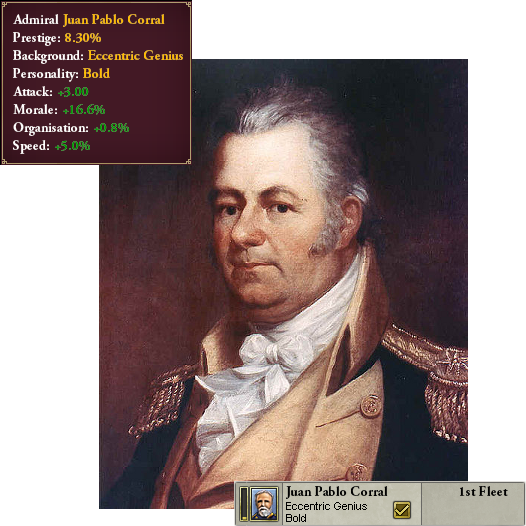
Born in a small village outside of Seville, Spain, Corral migrated with his father to the colonies at a young age. After acquiring his education, he chose to serve aboard colonial frigates as a ships boy until earning his first post on a Spanish Frigate during the Napoleonic wars. After the wars, he returned to the Viceroyalty of Mexico and served as a captain aboard several vessels before being named an Admiral and leading the fledgling Mexican navy during the revolution. During the first empire of Mexico, Corral, a strong supporter of the Republicans, left the Mexican navy and became a pirate, leading his ship in raids against Mexican military and merchant shipping. After the fall of the empire, Corral, tired of Mexican politics, settled in Nicaragua and retired, choosing instead to maintain plantations on dry land. He befriended the then General Morazán and assisted him during the Civil war by leading several small bands of light frigates in coastal raids along conservative strongholds in Honduras, Nicaragua and Costa Rica. He was named a Senator in 1835, at the age of 48.

Night was slowly draping over the sky as the orange sun sunk down like a flaming galleon into a swirling ocean of green and blue. It would only be a few more hours and he would be home. Rafael shifted uncomfortably in the saddle. He was thankful it wasn't raining, but the long road from his farm to the fort outside of Mataquescuintla had grown harder on him. This was his seventh trip over the course of the year, and his anger built with every clop of the hooves on the tough dirt road. Every pig delivered was money stolen from him, as far as he was concerned. He watched the fort grow from an outpost of a hundred men, to a fortified village of a thousand soldiers, all growing fat off the sweat from his brow and the blood and tears of the other locals, all being exploited for their “protection”. He shook the angry thoughts from his mind and lit a cigar.
He smiled and looked over the hills and jungles. At least he chose to take the long road home today. Since his wife became pregnant, her moodiness had grown unbearable, and Rafael learned to appreciate the difficulty of the road and the long silence in comparison.
This evening, however, the peace and silence would be broken as a thunder of hooves rolled down from the hills. Men were yelling, women and children clinging desperately to their mothers and fathers, while struggling to hold on to what few possessions they could cary. There were at least 50 men riding out from the farmlands that were cut patchwork throughout the jungle.
"Media vuelta!" the men called out as the horses charged past. Rafael struggled to keep his horse steady. One of the younger men slowed down, his rifle slung over his shoulder.
"Qué está pasando? What’s going on?" Rafael had to shout over the galloping horses.
"The soldiers! They're burning everything!" the young man was gasping for each panicked breath. "They're fighting the Nationalistas camped out in the mountains."
Rafael's stomach sank into his toes before clenching tight and cold. The young farmhand turned to ride towards the town "We're heading to the church. Father Marceson will know what to do."
"Gracias" Rafael barked back before grinding his spurs into the flanks of his horse. He disappeared into the thick cloud of dust billowing up from the road and galloped hard towards the hills.
As he cleared the dust clouds the glowing licks of flame stretched out sporadically from between the branches of the trees. The sound of gunfire echoed through the valleys. Each house he passed on the winding dirt roads was lit aflame, farm animals running in every direction to escape the blazes. The bodies of men and women were strewn along pathways, gunned down mid-flight. Rafael rode up the path, his heart quickening with the beat of the hooves.
He reached his home within the hour. As his exhausted horse struggled to trot down the path, Rafael quickly surveyed the scene. His pens were splintered and broken, the pigs squealing and running through the dusty path. The door to his house was split and swung open. Smoke struggled its way through the thatching of the grass roof, squirting out in thick grey blobs. The dull red glow of fire emanated from through the broken door.
Rafael leapt off of his horse and ran to the house in a single fluid motion. "Petrona!" he screamed as he burst through the doorway.
The house was ransacked. Storage cupboards were split open, sundries spilled over the table and the floor. Flames were spreading out from the fireplace and reaching their long glowing arms over the walls, stretching up to the ceiling. Rafael haphazardly made his way over the mess and through into the back room, his voice cracking and shaken as he shouted his wife’s name.
As he flung himself into the back room, the air sucked itself out of his lungs. Petrona was laying on the floor barely able to gasp for air. Her dark brown hair was matted with blood. Her clothing was torn and soaked red. Blood leapt from wounds on her shoulder and neck. Rafael collapsed to the ground and grabbed his wife. Her eyes faintly flickered as she looked up at him. She struggled to grab his arm, but her hands failed her. Within a moment, her last struggled, choking breath escaped her lips.
Rafael screamed and yelled in a blind fit, tears pouring down his face. He leaned over and held Petrona tightly, silently begging God to bring her back. Begging God to save his child, still clinging to life within her womb. It was then he noticed a twinkling on the ground. Small, distinct silver buttons scattered over the floor wedged into the cracks of the wooden floorboards.
Rafael picked up one of the buttons and squeezed it tightly, the burgundy of Petrona's blood dripping from between his fingers and splashing onto the floor. His jaw tightened, and tear-filled eyes turned red with rage. As smoke began to flood into the back room, Rafael picked up his Petrona’s lifeless body and fled his burning home. Sorrow and rage enveloped him, shuddering into his spine and stretching out like a demon throughout his body. He mounted his horse, still holding tightly to Petrona, and began riding down from the hills into town.
It was the black of night when he reached the Church in Mataquescuintla. The town was silent, tucked in tightly by the dark sky that draped over the houses, nestled nervously into a blanket of fear. Windows were shuttered, and the streets were only occupied by the odd stray cat hunting for its dinner. Rafael climbed down from his horse, cradled Petrona in his arms, and pushed through the large wooden doors.
The crowd of people inside gasped at the sight. Rafael’s clothing was splattered with blood, greyed by the dust of the road. Petrona's arms dangled freely, streams of red still slowly dripping their way down, splashing in small puddles on the ground below. Rafael walked slowly between the rosewood pews, his feet shuffling and his shoulders slumped low. The women he passed were sobbing quietly into handkerchiefs. The men stood beside them stoic and cold, gripping their rifles and feigning indifference, staring out the church's stained glass windows.
He approached the altar where Father Marceson stood and collapsed to his knees, tears once again springing from his eyes. The old priest looked on, his mouth agape. He awkwardly reached a hand out to place on Rafael’s shoulder, but retracted. No simple gesture could absolve the broken man kneeling before him.
Petrona's body slid slowly from Rafael’s arms and on to the hardwood beams of the Church floor. He closed her lifeless eyes, and kissed her cold, bloodstained lips one last time. Rafael struggled to his feet and reached clasped hands out to the priest.
"Forgive me father, for what I am about to do"
Father Marceson said nothing. He placed his hands on Rafael’s and nodded slowly.
The heavy thud of horses began to ring through the streets outside. One of the men observing out the windows yelled "Veinte hombres. They are riding this way."
Rafael turned and marched down the aisle, his body like stone. Emotion drained from his face. He picked up a rifle leaning against a pew and began pouring shot down the muzzle. The horses stopped in front of the Church, the soldiers encircling the front doors and preparing their own rifles. A man in a blue coat dotted with gold buttons, covered shoulder to hip with a broad red sash, dismounted and walked carefully and deliberately to the doors of the church.
"By order of the President and the Congress of the Republic, all men gathered here are to drop their weapons and disperse!" Rafael immediately recognized Captain Diego's voice.
Captain Diego swung open the doors. He stood unarmed, his golden buttons twinkling proudly in the candle light.
"Stand down and disperse, and no trouble will come from it." His strong, calm demeanor gave way when he saw Rafael standing before him. "
Please… stand down." He pleaded with the crowd in the church, his voice betraying his fear.
Rafael took one step forward and thrust the barrel of the rifle into Captain Diego's throat. Before the Captain could protest, Rafael pulled the trigger. A cloud of red mixed with gunpowder smoke sprayed over the front doors. The gunshot echoed into the dark empty streets.
Within seconds, gunfire hailed into the stained glass windows from the soldiers outside. The women and children were screaming, scrambling to duck under the pews. The men with the nerve to fight back leapt to the windows and returned fire. Rafael slammed and barred the large front door, barking orders to the farmhands and ranchers that defended the Church. After minutes of chaos, the gunfire ceased, and twenty Republic soldiers lay dead, their horses fleeing from the racket.
Rafael re-opened the doors to the church and marched outside. "I ride for the fort. Any man who seeks vengeance on these un-Godly bastardos for what they've done tonight, ride with me."
He mounted his horse and spurred towards the fort. Only eighteen men followed with him.
By morning, the fort outside of the once peaceful town was in flames, eighteen blood-soaked men riding out. It would be an hour before the Republican regiment would return from their raid into the mountains. As the Republican regiment arrived in Mataquescuintla, they saw the fort in ruins. Every man, Spanish, Creole, Mestizo and Mayan alike, was barricaded along the main road. Their rifles in hand, they stood behind Rafael's Eighteen, waiting for the order to fire.


